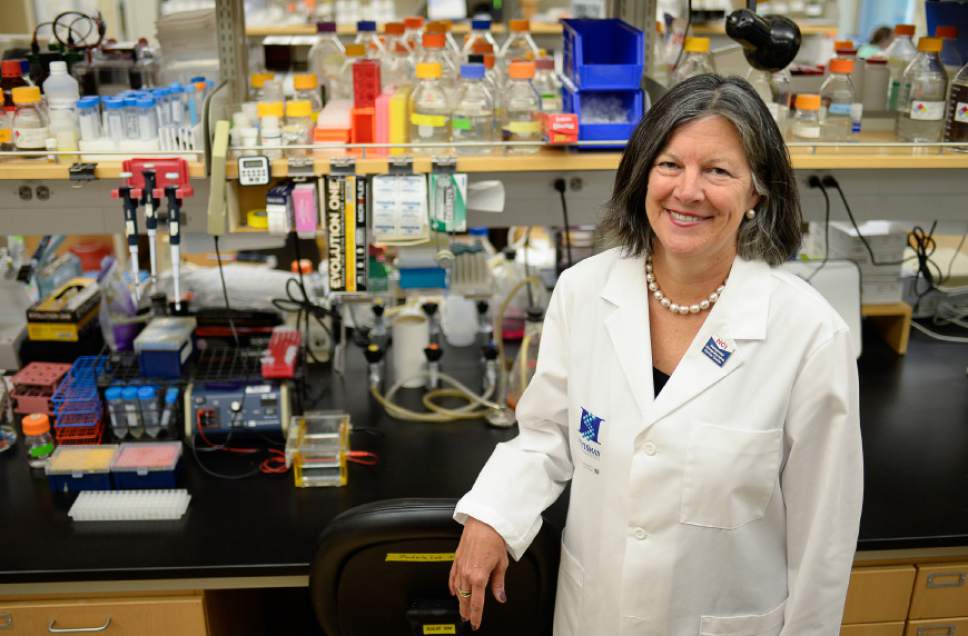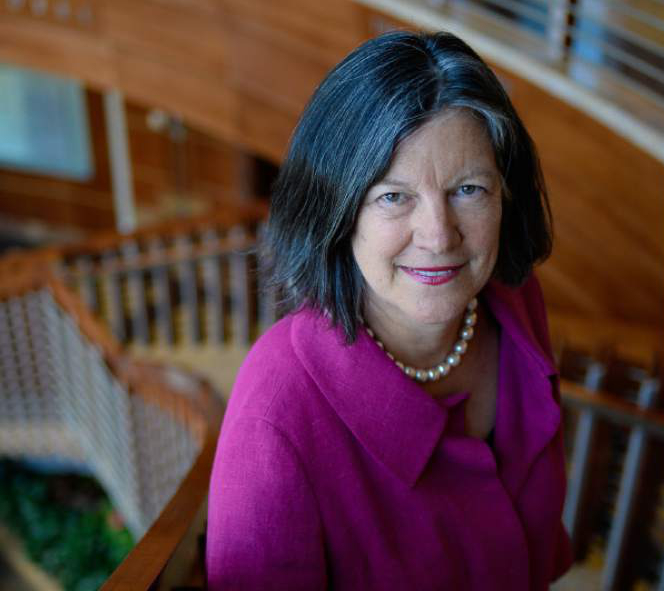This is an archived article that was published on sltrib.com in 2017, and information in the article may be outdated. It is provided only for personal research purposes and may not be reprinted.
The University of Utah is hiring an independent auditor to analyze all funding sent to the Huntsman Cancer Institute and how that money is being used — an investigation that comes after months of debate over the center's future and a high-profile clash last month.
The U. wants to "know the levels of support that have prevailed in the past," said Alan Sullivan, a Salt Lake City attorney retained by the U. to negotiate a new agreement between the university and the Huntsman Cancer Foundation.
"We both believe the agreement must be sustainable for both parties and fair to both parties and must provide resources for visionary advances in cancer research and clinical care for generations to come," he said in a conference call with reporters. "To help strike the right balance, we need to know facts."
Under earlier memorandums, the foundation paid $100 million for the center's operating expenses over a decade until that responsibility shifted to the U. in January 2013. Recently, founder Jon Huntsman Sr. and the foundation have asserted that the U. is not meeting its obligations to fund the institute, while the U. has contested that assertion.
Peter Huntsman, CEO of the cancer foundation, said Wednesday that he supports an audit. "That's their discretion; it seems like they could ask the foundation or the institute," he said.
Under the current agreement, the U. must provide two key forms of funding to the institute. Documents obtained by The Salt Lake Tribune on Wednesday through an open-records request show the U. explored both in a December presentation by Vivian Lee, then-senior vice president of U. health sciences, and others to representatives of the cancer foundation.
• The "gross operating margin" from Huntsman Cancer Hospital, which opened in 2004, must be split three ways: 25 percent is retained by the hospital, 25 percent is given to U. health sciences, and 50 percent is distributed to the cancer institute to be invested into its research.
"Margin calculation and allocation of margin," one page acknowledges, "is a complex topic."
The U. listed the margin amounts sent to the institute for the past three fiscal years, concluding with $32 million in fiscal 2016.
• The U. also must pay the operating costs of the cancer institute, with a required minimum of $13.5 million annually.
The specific amounts the U. has provided for operating costs are not clear in the presentation. A budget line labeled "HCI — MOU" lists transfers to the institute, but U. spokeswoman Kathy Wilets would not elaborate on what that meant. In that line, between fiscal year 2013 and fiscal year 2017, only the two most recent years reached the minimum level of funding set in the memorandum of understanding.
Wilets referred questions to Sullivan, who could not be reached for further comment.
The presentation also lists other funding for the institute, such as grants and state dollars, including tobacco funds and cigarette taxes.
Susan Sheehan, president and chief operating officer of the foundation, said Wednesday that the document "appears to under-report grant numbers associated with Huntsman Cancer Institute's grant productivity and to have some other inaccuracies as well."
She referred specific questions to institute representatives, who could not be reached for comment. Sheehan added that the foundation will release more detailed financial information about the institute's funding Friday.
The Office of the Legislative Fiscal Analyst on Wednesday estimated that the state has provided about $184 million for the institute and hospital since fiscal 2001.
• From fiscal 2001 through fiscal 2017, the Utah Legislature has appropriated about $125 million for the institute.
• An additional $1.4 million per year has been appropriated to the U. since fiscal 2000 for operations and maintenance costs on the first phase of the cancer hospital, for a total of about $25 million more through FY 2017.
• Since fiscal 2001, about $2 million per year from a legal settlement with tobacco companies has gone to the U. for debt service.
Negotiations on a new agreement between the U. and the foundation have been underway for months. A draft MOU from March shows the Huntsmans had been seeking a 75 percent share of the cancer hospital's operating margins for the institute for three years, to make up for the shortfall they see in U. funding.
Peter Huntsman has previously said that U. President David Pershing had generally agreed that the U. would temporarily share more revenue with the institute.
But discussions halted in April after Lee abruptly fired institute CEO and Director Mary Beckerle. The move sparked biting criticism from faculty and the Huntsman family, and Pershing reinstated Beckerle a week later. Since then, Lee has resigned and Pershing has announced that he will be stepping down early.
U. spokesman Chris Nelson said Sullivan now will negotiate an initial agreement for the university, with final discussions referred to Pershing and Lee's interim replacement, A. Lorris Betz.
Sullivan said he could not put a time frame on how long negotiations will take. He's seeking input from many stakeholders both inside and outside the university, he said.
"I can tell you that it is in our interest to move these along as quickly as possible and we intend to expedite it wherever possible," he said. "Hopefully both sides feel the same way."
Twitter @alexdstuckey
Editor's note • Paul Huntsman, a son of Jon Huntsman Sr. and brother of Peter Huntsman, is the owner and publisher of The Salt Lake Tribune





